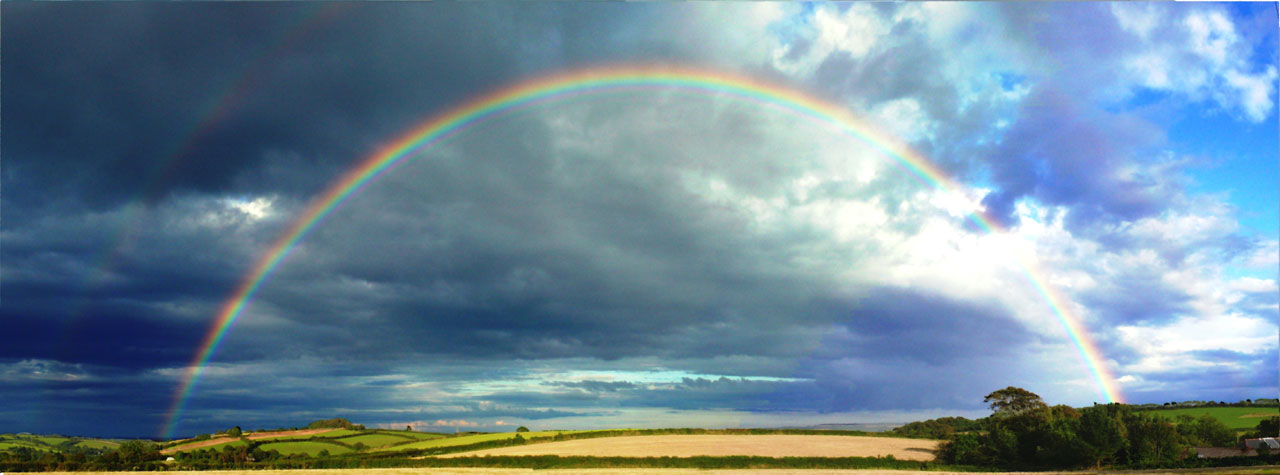REMEMBERING YOUR COVENANT AND COMMITMENT
THE SEED
“Whenever the rainbow appears in the clouds, I will see it and remember the everlasting covenant between God and all living creatures of every kind on the earth.” Genesis 9:16 (NIV)
God is a covenant-keeping God. After the flood, He made a promise to Noah and all living creatures that He would never again destroy the earth with water. As a sign of this everlasting covenant, He placed the rainbow in the sky; a visible reminder of His faithfulness. Whenever God sees the rainbow, He remembers His promise. This act of remembrance teaches us an important lesson: we, too, should establish ways to remember the covenants we make with God and with others. As believers, we often make commitments; whether to serve God faithfully, to love others unconditionally, or to walk in integrity. However, with time, distractions, and challenges, we sometimes forget our promises. Just as God set the rainbow as a reminder, we can also establish ways to keep our hearts aligned with our commitments. This could be through journaling our spiritual vows, leveraging technology; making use of the reminder function on our devices, setting aside time for reflection and prayer, or creating symbols that remind us of our promises. God never forgets His word, and we are called to reflect that same faithfulness. Just as the rainbow reminds us of His unfailing promises, we too should honour our commitments; to God, our families, and others with integrity. Take time today to reflect on your promises, and if you’ve fallen short, ask for grace to recommit. Let your life mirror God’s faithfulness through every word you keep.
BIBLE READING: Genesis 9:8-16
PRAYER: Lord, Teach me to set reminders that will keep my heart aligned with Your will and my commitments. Let my life reflect Your faithfulness. Amen.
SISE ÌRÁNTÍ MÁJEMU ÀTI ÌJ’ÓLÓÒTÓ RÈ
IRUGBIN NAA
“Nígbàkúùgbà tí òṣùmàrè bá hàn nínú ìkùukùu, èmi yóò rí i, èmi yóò sì rántí májẹ̀mú ayérayé tí ó wà láàárín Ọlọ́run àti gbogbo ẹ̀dá alààyè lórí ilẹ̀ ayé.” Jẹ́nẹ́sísì 9:16
Ọlọrun jẹ Ọlọrun ti o pa majẹmu mọ. Lẹ́yìn ìkún- omi, Ó ṣe ìlérí fún Nóà àti gbogbo ẹ̀dá alààyè pé òun kì yóò fi omi pa ayé run mọ́. Bi ami majẹmu ayeraye yi, O fi òṣùmàrè si ọrun; Iranti ti o fi otitọ Rẹ han. Nigbakugba ti Ọlọrun ba ri òsùmàrè, A ranti ileri Rẹ. Ìṣe ìrántí yìí kọ́ wa lẹ̀kọ́ pàtàkì kan: àwa pẹ̀lú, ní láti gbé àwọn ọ̀nà sílẹ̀ láti rántí àwọn májẹ̀mú tí a bá Ọlọ́run dá àti pẹ̀lú àwọn ẹlòmíràn. Gẹgẹbi onigbagbọ, a n fi igbagbogbo ṣe awọn adehun; yálà láti sin Ọlọ́run pẹ̀lú ìṣòtítọ́, láti nífẹ̀ẹ́ àwọn ẹlòmíràn láìdábọ̀, tàbí láti rìn nínú ìwà títọ́. Bí ó ti wù kí ó rí, pẹ̀lú àkókò, ìpínyà ọkàn, àti ìpèníjà, a máa ń gbàgbé àwọn ìlérí wa nígbà mìíràn. Gẹ́gẹ́ bí Ọlọ́run ṣe gbé òṣùmàrè kalẹ̀ gẹ́gẹ́ bí ìránnilétí, a tún lè ṣètò àwọn ọ̀nà láti mú kí ọkàn-àyà wa wà ní ìbámu pẹ̀lú àwọn ìpinnu wa. Eyi le jẹ nipasẹ ṣiṣe akọọlẹ awọn ẹjẹ ti ẹmi wa, lilo imọ-ẹrọ; lilo iṣẹ olurannileti lori awọn ẹrọ wa, ṣeto akoko sọtọ fun iṣaro ati adura, tabi ṣiṣẹda awọn aami ti o leti wa ti awọn ileri wa. Ọlọ́run kì í gbàgbé ọ̀rọ̀ Rẹ̀ láé, a sì pè wá láti fi ìṣòtítọ́ kan náà hàn. Gẹ́gẹ́ bí òṣùmàrè ṣe ń rán wa létí àwọn ìlérí Rẹ̀ tí kò lè kùnà, bẹ́ẹ̀ náà ni àwa pẹ̀lú gbọ́dọ̀ bọ̀wọ̀ fún àwọn àdéhùn wa; sí Ọlọ́run, àwọn ẹbí wa, àti àwọn mìíràn pẹ̀lú ìwà títọ́. Gba akoko loni lati ronu lori awọn ileri rẹ, ati pe ti o ba ti kuna, beere fun oore-ọfẹ lati tun ṣe. Jẹ ki igbesi aye rẹ ṣe afihan otitọ Ọlọrun nipasẹ gbogbo ọrọ ti o tọju.
BIBELI KIKA: Jẹ́nẹ́sísì 9:8-16
ADURA: Oluwa, Kọ mi lati ṣeto awọn olurannileti ti yoo jẹ ki ọkan mi wa ni ibamu pẹlu ifẹ Rẹ ati awọn ipinnu mi. Jeki aye mi fi otito Re han. Amin.
